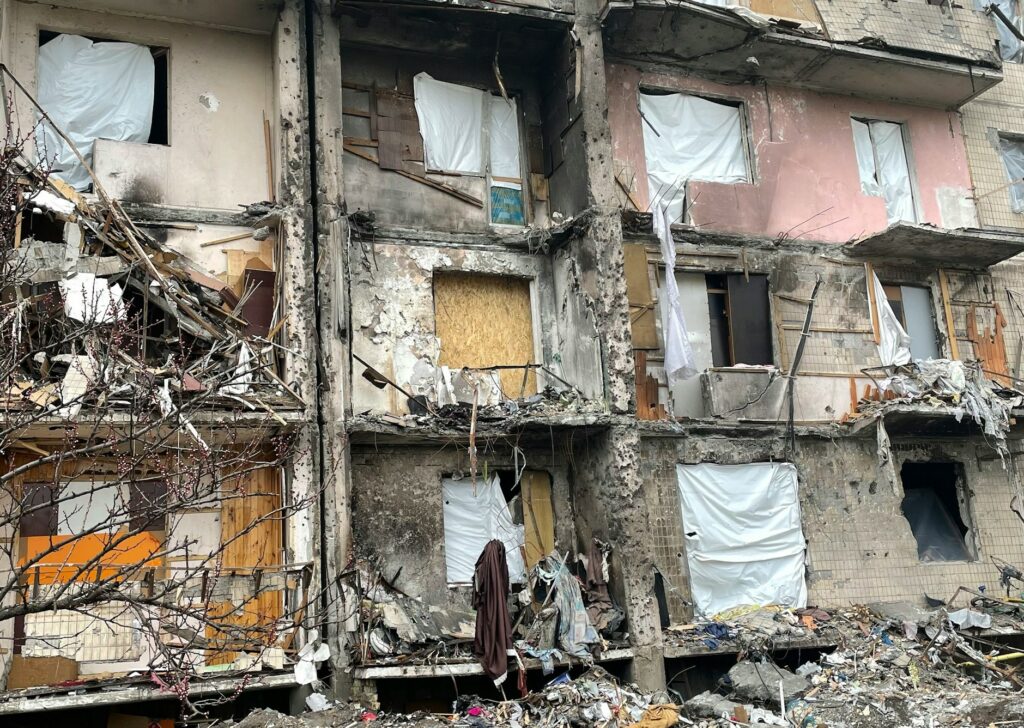
(Rightallegiance.com) – The humanitarian crisis in Gaza has escalated dramatically following the recent Israeli military operations targeting hospitals in the region, which have drawn intense scrutiny and condemnation from international observers.
Volker Türk, the United Nations High Commissioner for Human Rights, expressed deep horror at the devastation witnessed at Gaza’s Nasser and al-Shifa hospitals, and concerning reports of mass graves discovered at these sites. These revelations have prompted urgent calls for thorough and independent inquiries into the circumstances and accountability for the deaths involved.
Palestinian authorities have reported troubling findings from excavations at Nasser Hospital, where 283 bodies were unearthed, some showing signs of having been bound. The exact cause and time of death for these individuals remain unclear, adding to the gravity of the situation. Despite allegations of Israeli forces burying bodies at this site, the Israeli military has dismissed these claims as “baseless.” However, they acknowledged that their troops had inspected bodies previously buried by Palestinians during a two-week operation in February, based on intelligence suggesting potential locations of hostages.
Amidst these developments, the UN Human Rights Office in the Palestinian territories, led by Ajith Sunghay, indicated a lack of conclusive evidence regarding the condition of the bodies found, despite some photographic documentation of bodies with bound hands. This evidence, however, does not meet the UN’s standard of proof, leaving many questions unanswered.
The backdrop to these distressing events includes prior Israeli military actions at these hospitals, driven by assertions that Hamas fighters were operating from within—claims strongly denied by Hamas and medical personnel. This narrative forms part of a broader conflict that erupted spectacularly on October 7, with a cross-border attack by Hamas gunmen resulting in significant casualties and the taking of hostages.
The toll of the conflict has been devastating. Gaza’s health ministry reports over 34,180 fatalities, predominantly women and children, since the onset of hostilities. The UN Human Rights Office is actively working to verify these figures and the conditions under which the deceased were found. Reports suggest that many of the bodies were buried improperly, accompanied by signs of violence and neglect.
Volker Türk has emphasized the necessity of independent, effective, and transparent investigations, advocating for the inclusion of international investigators due to the pervasive “climate of impunity.” He underscored that hospitals, accorded special protection under international humanitarian law, should not be sites of warfare and that the deliberate killing of civilians and other non-combatants constitutes a war crime.
The situation has elicited reactions from various quarters, including the US State Department, which described the reports as “incredibly troubling.” Additionally, accounts from Gaza’s civil defense and individuals seeking missing relatives paint a chaotic and grim picture of the aftermath of the Israeli raids, with allegations of bodies being moved and disrespect shown to the deceased.
Israeli military statements assert that their operations in these hospitals were precise and aimed at dismantling Hamas’ capabilities, insisting on the humane treatment of detainees and respect for the medical facilities and staff. However, these claims are juxtaposed starkly against reports from medical staff and other witnesses of harsh treatment and dire conditions following the raids.
Further complicating the narrative are reports from the World Health Organization, which described al-Shifa Hospital as an “empty shell” after the Israeli withdrawal, highlighting the severe damage and the presence of numerous shallow graves.
As the international community watches closely, the UN human rights chief continues to voice concerns over potential further escalations and the dire implications for civilian safety, particularly in light of ongoing Israeli operations in densely populated areas such as Rafah. The need for adherence to international humanitarian and human rights law remains a central theme in calls for de-escalation and accountability in this deeply troubled region.